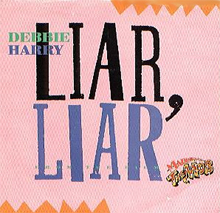I hate to pick on a company in particular, but I honestly think that many companies cross the line. From time to time, we all do a little manipulation of the facts to make our claim look just a little bit better. As Seth Godin says, “All Marketers Are Liars.” But just because that is normal doesn’t mean that it is a good idea. I would argue, that because it is normal, it is actually imperative that you do something different. You need to go out of your way to ensure that your claims stand up. Do you?
Today’s victim is Match.com.
Now, don’t get me wrong. I am happy that Match.com and all of its competitors exist. I am an old married guy, but one of the things I tell people is that the best thing about being married is that I don’t have to date anymore. I found my wife and thank God she puts up with me, and I don’t have to be as excruciatingly awkward as I was when I was single.

But I can’t help but wonder about these Match.com marketing messages. They just rub me the wrong way. What exactly does it mean that “People who join match are three times more likely to end up in a relationship as those that don’t”?
Gee, could it be that the vast majority of people who do not join Match.com are already in a relationship? Or they are children? I mean, what does that mean exactly? I would expect that the folks who join Match.com are looking for a relationship, so wouldn’t that mean something?
But I would have let that go. I mean, really. One commercial is no big deal. But then I saw the next one: “More people find relationships on Match than any other service.”
Um, OK. Is it possible that more people are ON Match.com than on any other service?
Now maybe I am just an overly-analytical nerd who doesn’t trust anyone. But all this stuff reminds me of the auto insurance ads–“People who switched to us saved $492 in premiums.” Yeah, well, sure. Do you think the people who were given higher quotes actually switched to you?
But this is the problem with over-the-top claims. It could be that Match.com is actually a great service that is better than all the rest. Thankfully, my wife hasn’t thrown me out yet, and I don’t have to find out. But the claims I am hearing sound just a little too hard to pin down. (“It depends on what you definition of is is.”)
Take my advice. Stop trying to fool your customers. Start feeding them facts. Don’t say, “We’re the best.” Say, “We won the J.D. Power Award.” Give them real facts to believe in and reap the rewards. Try to fool them and you will sow what you reap there, too.







